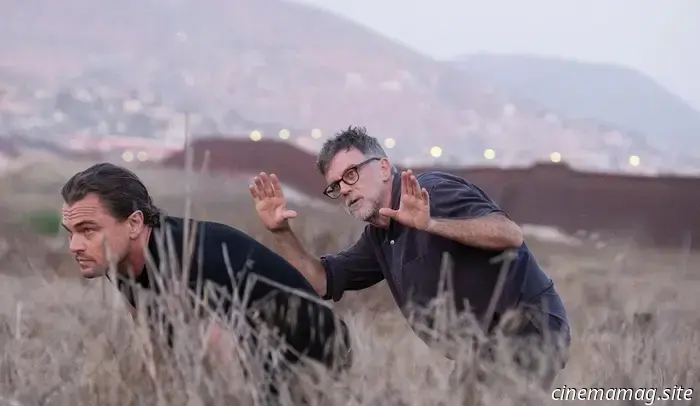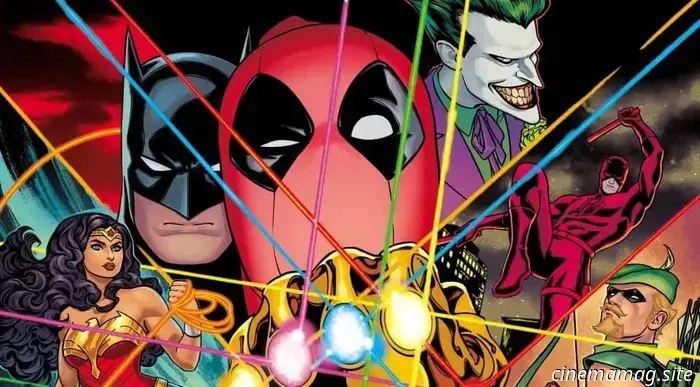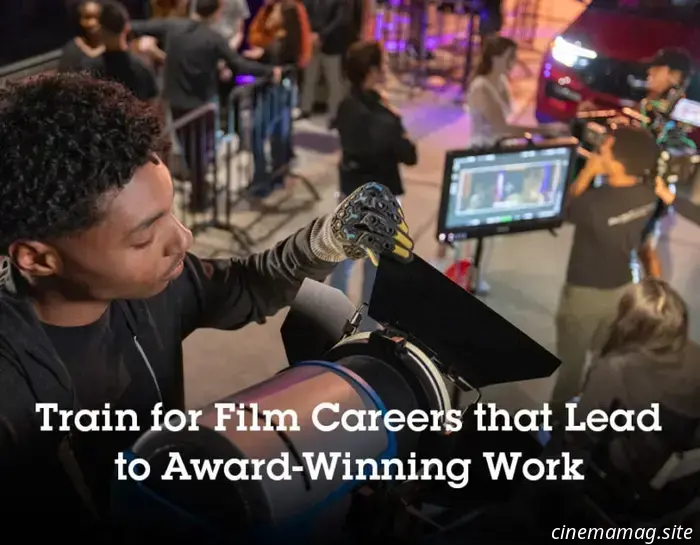
Paul Thomas Anderson on Receiving Thomas Pynchon's Approval to Significantly Adapt Vineland: “I Took the Elements That Truly Resonated with Me”
After finally revealing One Battle After Another last week with a Steven Spielberg-approved screening and discussion, the early acclaim for Paul Thomas Anderson’s comedic-action epic has been rightly exuberant. Although the narrative of revolutionaries draws inspiration from Thomas Pynchon’s 1990 novel Vineland (with events moved forward a few decades), Anderson’s adaptation hardly quotes from the original text, using merely its foundation to craft a unique story. In fact, his approach contrasts sharply with his first Pynchon film, Inherent Vice, prompting curiosity about his adaptation process. We now have some insights.
“I began working on this story 20 years ago, aiming to create an action car-chase film, revisiting it every two or three years,” Anderson shared in WB’s official production notes. “At the same time, in the early 2000s, I considered adapting Thomas Pynchon’s Vineland, a book about the 1960s that he wrote in the ’80s. I was trying to interpret what the story meant two decades later. Another idea I had was centered around a female revolutionary. So, for 20 years, I’ve been exploring these various themes, none of which ever really left my mind.”
“Practically speaking, I found Vineland difficult to adapt. Instead, I took the elements that resonated with me and began weaving these ideas together. With [Pynchon’s] approval,” Anderson mentioned, affirming he is among the few who have interacted with Pynchon, the elusive postmodern writer whose new work Shadow Ticket will be released shortly after One Battle debuts in theaters.
In a recent SAG Q&A, the director shared more about the adaptation journey, describing the film as originating from “a collection of different inspirations over several years.” He continued, “The very first idea was simply the desire to create an action-adventure film in a desert setting featuring a car chase. That was the broad vision, like thinking, ‘Wouldn’t that be fun to do someday?’ Then I sought a stronger narrative to support that. I had a plot involving a bounty hunter who committed wrongdoings for corrupt people and felt the need to change his path. That concept lingered for a while.”
“And then there was Vineland by Thomas Pynchon, whose book Inherent Vice I adapted a few years ago, a story I cherished. The central idea there, which we have adopted, deals with what happens when revolutionaries disperse, particularly focusing on one character—Zoyd in the book—who ends up in the Northern California wilderness with a daughter to care for and faces the repercussions of his past,” he added.
While his outstanding, often overlooked Inherent Vice closely followed Pynchon’s text word for word, Anderson opted for a different strategy. “Instead of closely honoring the book as I did with Inherent Vice, I took what I needed and merged various narratives, gradually developing the material and contemplating [this cast] to include in the story. About seven or eight years ago, it all began to coalesce significantly.”
However, the timing was not right due to a crucial casting decision. “To be honest, [casting director] Cassandra [Kulukundis] and I believed that finding the right person for Willa was paramount,” he explained. “In the absence of someone fitting for Willa at that time, we just waited, worked on Licorice Pizza, and then, when we finally found the right Willa, it felt like the perfect moment to make this film... honestly, this project was waiting for Chase [Infiniti]. Just as it took 25 years for Leo and me to collaborate, I feel that things unfolded as they were destined to.”
With less than two weeks until One Battle premieres in theaters, for more details, watch a recent SAG Q&A and the film's first clip below.
Lastly, here are my brief reflections before the full embargo is lifted.
One Battle After Another is a fiercely intense, disturbingly funny thrill ride through the decay of America’s oppressive, xenophobic underbelly. PTA hardly takes a sentence from Vineland to craft a world that is both chillingly familiar and unexpectedly tender.


Other articles
 TIFF Review: Two Pianos is Yet Another Profound and Engaging Drama by Arnaud Desplechin
The past makes its presence felt in Two Pianos, the latest film by Arnaud Desplechin, which delves into how beautiful individuals complicate the already chaotic nature of life. Set in the realm of classical music in Lyon, this story revolves around a distressed pianist's reunion with his equally troubled first love, featuring literary and
TIFF Review: Two Pianos is Yet Another Profound and Engaging Drama by Arnaud Desplechin
The past makes its presence felt in Two Pianos, the latest film by Arnaud Desplechin, which delves into how beautiful individuals complicate the already chaotic nature of life. Set in the realm of classical music in Lyon, this story revolves around a distressed pianist's reunion with his equally troubled first love, featuring literary and
 Deadpool/Batman #1 - Comic Book Teaser
Marvel and DC begin their major crossover event this week with the launch of Deadpool/Batman #1 from Marvel Comics. You can check out a sneak peek below with the official preview and cover gallery… The crossover you've desired but never imagined could happen: DEADPOOL and BATMAN clash with swords and batarangs as MARVEL and [...]
Deadpool/Batman #1 - Comic Book Teaser
Marvel and DC begin their major crossover event this week with the launch of Deadpool/Batman #1 from Marvel Comics. You can check out a sneak peek below with the official preview and cover gallery… The crossover you've desired but never imagined could happen: DEADPOOL and BATMAN clash with swords and batarangs as MARVEL and [...]
 McFarlane Toys reveals new action figures based on Demon Slayer: Kimetsu no Yaiba.
McFarlane Toys has officially introduced its action figures of Sanemi Shinazugawa, Nezuko Kamado, and Zenitsu Agatsuma from the popular anime series Demon Slayer: Kimetsu no Yaiba, which are currently available for pre-order. Take a look at the promotional images and information below… SEE ALSO: Video Review – Demon Slayer: Kimetsu no Yaiba – The Movie: Infinity Castle The Wind […]
McFarlane Toys reveals new action figures based on Demon Slayer: Kimetsu no Yaiba.
McFarlane Toys has officially introduced its action figures of Sanemi Shinazugawa, Nezuko Kamado, and Zenitsu Agatsuma from the popular anime series Demon Slayer: Kimetsu no Yaiba, which are currently available for pre-order. Take a look at the promotional images and information below… SEE ALSO: Video Review – Demon Slayer: Kimetsu no Yaiba – The Movie: Infinity Castle The Wind […]
-Movie-Review.jpg) Modern Whore (2025) - Film Review
Modern Whore, 2025 Directed by Nicole Bazuin. Featuring Andrea Werhun. SYNOPSIS: Chronicles Andrea Werhun as she embodies her earlier personas as escort Mary Ann, stripper Sophia, and her activities on OnlyFans – all encapsulating her journey through sex work in Toronto. Writer/director Nicole Bazuin marks her first feature film with Modern Whore, a hybrid documentary that explores the experiences of […]
Modern Whore (2025) - Film Review
Modern Whore, 2025 Directed by Nicole Bazuin. Featuring Andrea Werhun. SYNOPSIS: Chronicles Andrea Werhun as she embodies her earlier personas as escort Mary Ann, stripper Sophia, and her activities on OnlyFans – all encapsulating her journey through sex work in Toronto. Writer/director Nicole Bazuin marks her first feature film with Modern Whore, a hybrid documentary that explores the experiences of […]
 Over 190 graduates from Full Sail University are credited on more than 170 nominated projects at the Emmys - MovieMaker.
Graduates of Full Sail University have once again left their imprint on television this year, with over 190 alumni recognized across more than 170 nominated projects.
Over 190 graduates from Full Sail University are credited on more than 170 nominated projects at the Emmys - MovieMaker.
Graduates of Full Sail University have once again left their imprint on television this year, with over 190 alumni recognized across more than 170 nominated projects.
Paul Thomas Anderson on Receiving Thomas Pynchon's Approval to Significantly Adapt Vineland: “I Took the Elements That Truly Resonated with Me”
After finally revealing One Battle After Another last week through a screening and discussion endorsed by Steven Spielberg, the initial acclaim for Paul Thomas Anderson's remarkable blend of comedy and action has been truly enthusiastic. Although the narrative about revolutionaries is drawn from Thomas Pynchon’s 1990 novel Vineland (with the timeline advanced by a few decades), Anderson's film hardly
